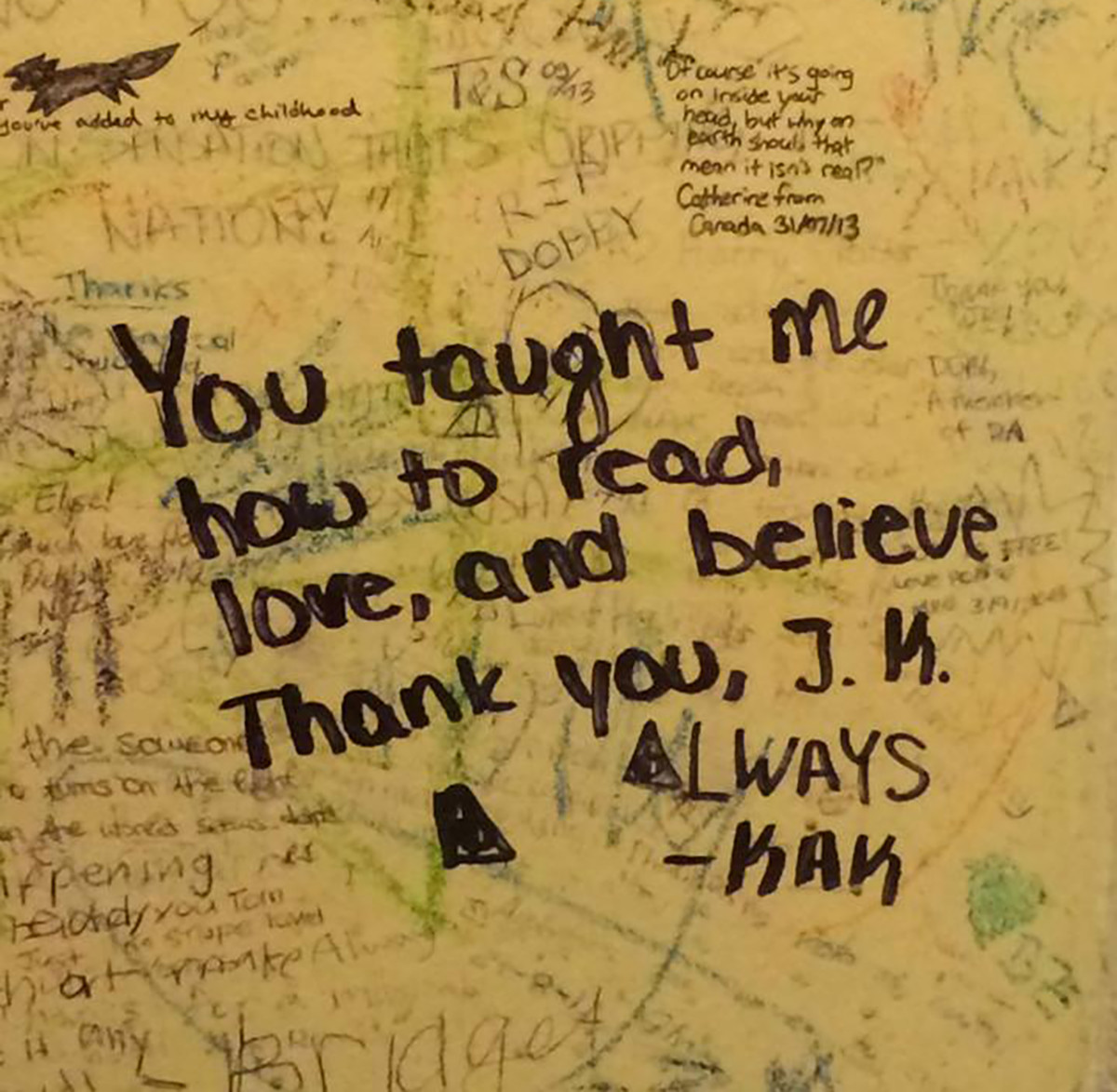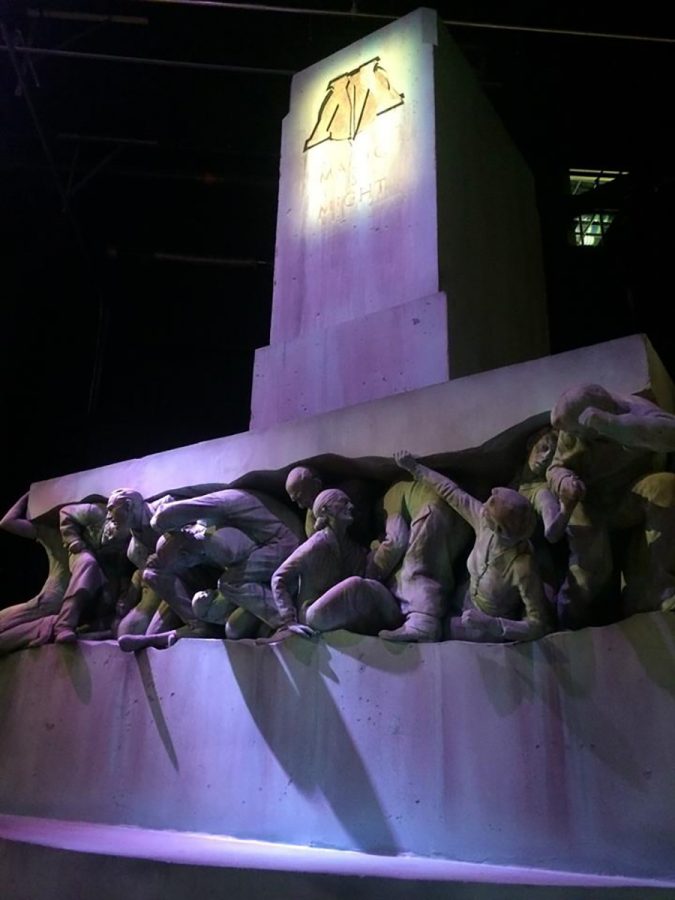Learning tolerance and empathy through the ‘Harry Potter’ series
Within the magic of the wizarding world lies a relevant message
More stories from Deanna Kolell
Photo by Deanna Kolell
One of the most prominent symbols of bigotry and oppression is the statue erected during Voldemort’s reign, with Muggles in their “rightful place.”
In light of the recent release of “Fantastic Beasts and Where to Find Them” on the big screen, I come forward with a startling confession: I am a Potterhead.
I’ve read the books countless times. My sisters and I wrote comic strips about “Harry Potter.” We even invented a board game.
So when I got the opportunity to study abroad during the 2015 spring semester, my friends and I seized every opportunity to incorporate “Harry Potter” into our trip.
Perhaps the most interesting “Harry Potter” experience took place in Edinburgh, Scotland when we visited The Elephant House cafe, where J.K. Rowling wrote many of her early novels.
The cafe itself wasn’t special, other than a fabulous collection of elephant statues. However, the bathroom walls were covered with quotes from “Harry Potter” books and movies and messages to Rowling herself.
“You taught me to read, love, and believe. Thank you, J.K.,” one message read.

The wall in the Edinburgh bathroom.
It was here — in a cafe bathroom in Edinburgh — where I started thinking about the real importance of Harry Potter.
I will always encourage everyone to try reading the books. “Harry Potter” is the definition of a hero story and an entire generation grew up alongside him and his friends.
However, the themes underneath are truly impactful today, even within a book about witches and wizards. Underneath the magic lies a message, warning against bigotry and promoting tolerance.
Although it can never be proven, Professor Anthony Geirzynski argues in his book “Harry Potter and the Millennials: Research Methods and the Politics of the Muggle Generation” that he is confident “Harry Potter” played a critical role in the development of millennials.
Millennials, stated by Geirzynski, “tend to be more open to diversity; politically tolerant; less authoritarian; less likely to support the use of deadly force or torture.”
Indeed, studies have shown a strong correlation between reading “Harry Potter” and increased empathy for minority groups. In fact, research published in the Journal of Applied Social Psychology asserted children who read “Harry Potter” were less likely to discriminate against refugees, immigrants and homosexuals.
One of the researchers, Dr. Loris Vezzali, stated that Harry Potter is appealing as a hero because he “empathizes with characters from stigmatized categories, tries to understand their sufferings and to act towards social equality.”
This is a theme visible through all the “Harry Potter” books with regard to groups like Muggles (non-magical people), Muggle-born wizards and witches, werewolves, house-elves and more.
For example, house-elves are creatures who had been enslaved by wizards for centuries. When Harry’s friend Hermione begins advocating for their rights at Hogwarts, people mock her endeavors.
“House-elves don’t want sick leaves and pensions,” argues Hagrid, the school’s gamekeeper.
This scenario nearly mirrors slavery in America, which was frequently justified by saying slaves would not want their freedom even if it was offered.
In addition, a hierarchy is created in the wizarding world based on “blood purity.” Pure-bloods (witches and wizards with two magic parents) are seen as inherently better than Muggle-borns, as embodied by the Malfoy family and Voldemort.
The examples of bigotry and discrimination are wide and varied throughout the “Harry Potter” books but Rowling said herself that she hopes people will take an important message away from her books.
“The Potter books in general are a prolonged argument for tolerance, a prolonged plea for an end to bigotry,” Rowling said. “And I think that it’s a very healthy message to pass on to younger people that you should question authority and you should not assume that the establishment or the press tells you all of the truth.”
Rowling’s words hit close to home, especially in light of America’s current political and social climate. If there’s one thing the recent presidential race demonstrated, it was a widespread distrust of the establishment and the press.
The result of the election has many citizens frightened over the future of our country in regard to treatment of minorities, immigrants and other groups, as well as a regression of social issues.
Although we can’t predict what will happen to our country within the coming years, what we can do is emulate an accepting and loving attitude as encouraged by Rowling and Hogwarts’ headmaster Albus Dumbledore.
“We are only as strong as we are united, as weak as we are divided … differences of habit and language are nothing at all if our aims are identical and our hearts are open.”


